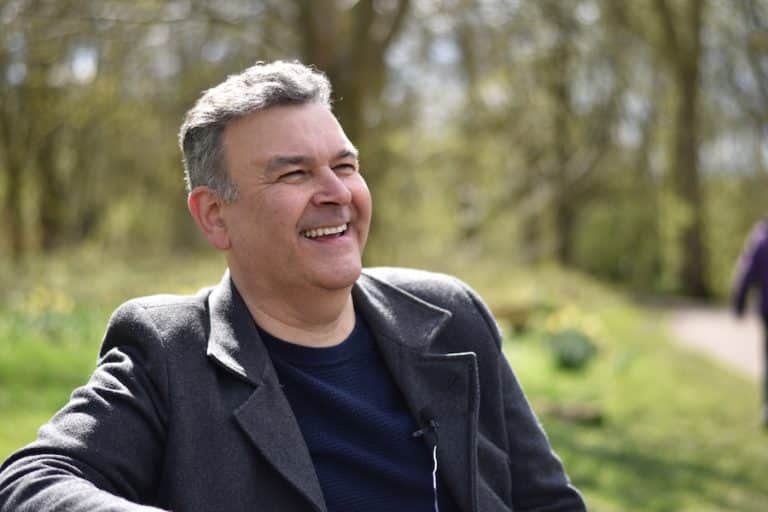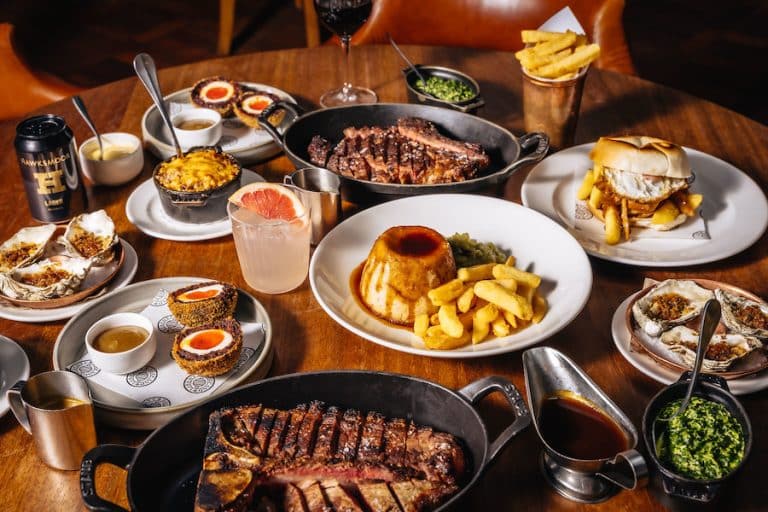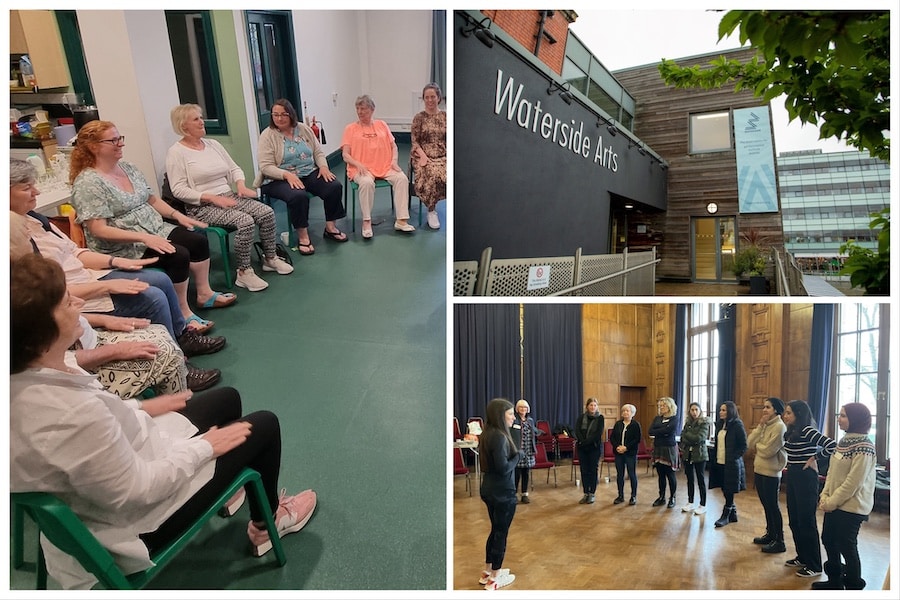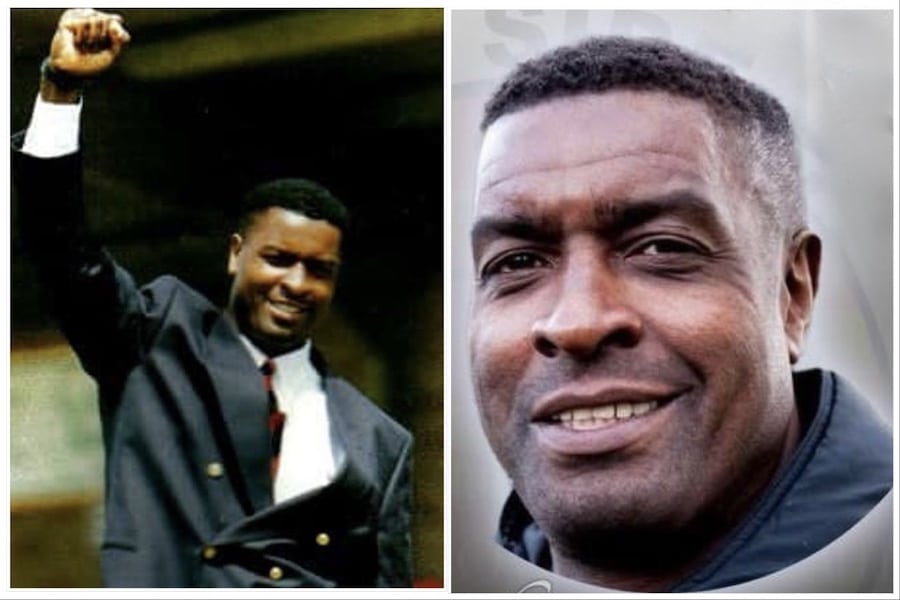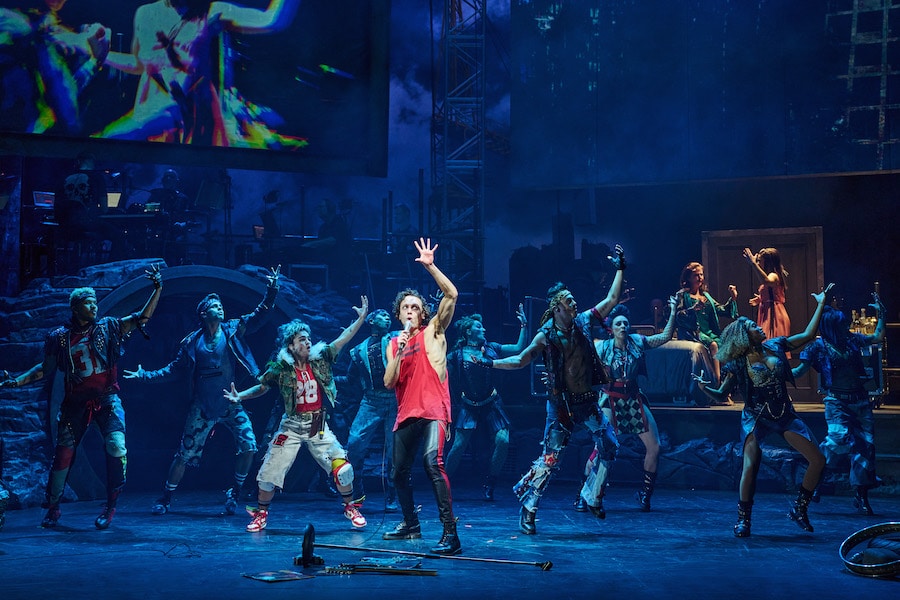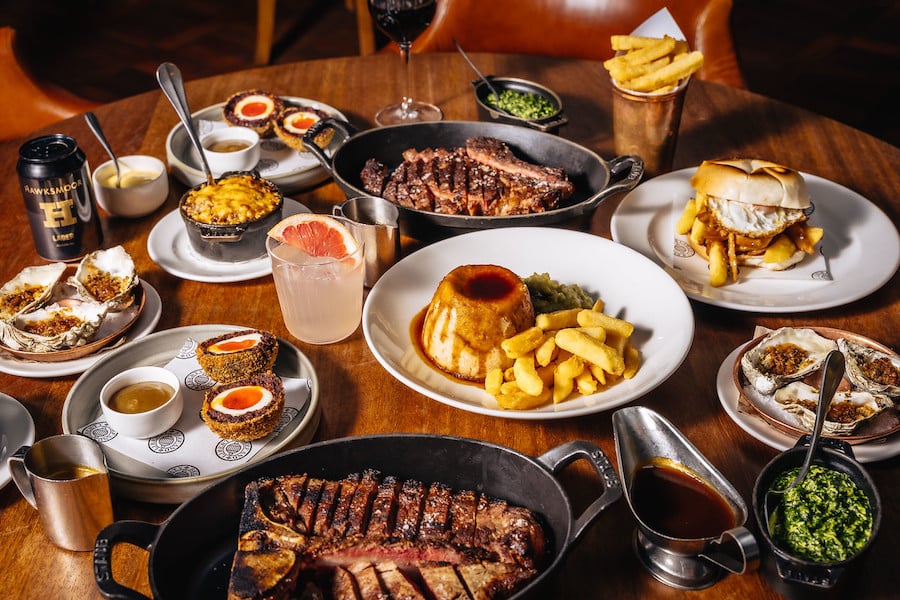World renowned children’s author joins Manchester Camerata to get kids into classical music
- Written by Thom Bamford
- Last updated 10 months ago
- Books, City of Manchester, Music, People
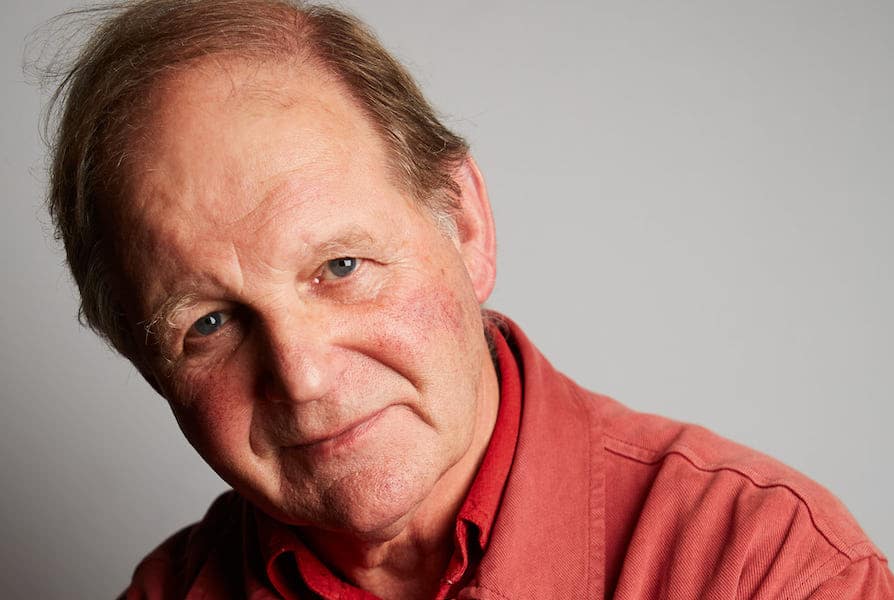
Michael Morpurgo, the beloved author and storyteller, is set to enchant Manchester’s audiences once again, this time not with his pen but with his voice.
He has written many award-winning books for children including War Horse, Why the Whales Came and Private Peaceful, as well as screenplays and libretti (the words) for opera but now he’s trying something different with the Manchester Camerata.
He is taking his talents to the stage of Manchester alongside the Manchester Camerata for a truly ROARSOME concert experience.
It’s called Storytime with Sir Michael Morpurgo
The event promises to be a wild and colourful celebration of the animal kingdom through the medium of classical music.
Featuring iconic works such as Saint-Saëns’ “Carnival of the Animals” and Prokofiev’s “Peter and the Wolf,” the concert will be brought to life by Morpurgo himself, alongside award-winning television presenter Josie D’Arby.
Storytime with Sir Michael Morpurgo and Josie d’Arby
We sat down with Sir Michael Morpurgo to talk about the event, Manchester, and how he got into writing.
Sir Michael was initially approached by the Kanneh-Masons, a talented group of musicians from Nottingham, to collaborate on a project aimed at introducing young people to classical music through the magic of storytelling and verse.
Embracing the challenge with characteristic enthusiasm, Morpurgo dove into the world of poetry, crafting a dozen or so compositions to accompany the musical works of Saint-Saëns, for the iconic work Carnival of the Animals.
The result? A remarkable CD recording, brought to life in the legendary Abbey Road Studios, no less, where Morpurgo found himself standing before the same microphone once used by the Beatles.
“I was approached by Decca to provide a dozen or fifteen poems to accompany the recordings… Eager to embark on a new endeavour, I accepted the challenge with enthusiasm.
“I’d always wanted to write poetry” he added, laughing.
“The outcome was truly remarkable, and I felt a sense of fulfilment having contributed to such a project.
“During the pandemic, this experience brought me great joy.
“Since then, I’ve had the pleasure of participating in concerts with various groups, including individual cellists and string quartets.
“Recently, I received an invitation from the Manchester Camerata group to perform two shows featuring our recordings alongside another piece, “Peter and the Wolf.”
Poetry and classical music might not be a traditional pastime for children, but Sir Michael says that these musical pieces are also part of a huge story, that he thinks children will enjoy.
He said: “I believe it’s true that when you introduce the right music to young children, it captivates and involves them, making it more likely for them to enjoy it. I think this rings completely true.
“The selection of “Carnival of the Animals” for this purpose may be attributed partly to the fact that each piece of music within it carries a narrative to some extent.”
You can see Sir Michael read ‘Tortoise’ one of the pieces that will be read at the event below:
“We’re not presenting something that’s over their heads or trying to force them to like something unlikable. The music is genuinely entertaining, atmospheric, and humorous. It utilises the instruments in an intriguing manner.
“The tunes are delightful, and I hope they will genuinely enjoy the music.”
How did Sir Michael Morpurgo get into writing?
Sir Michael shared the story of how he first fell in love with writing.
He says it was nearly by complete accident.
“When I say it was an accident, I wouldn’t exactly call it that. I used to teach at a primary school, not too long ago. I spent a decade teaching at the front lines, so to speak, so I understand what it’s like to engage and entertain sixth graders throughout the day.
“It’s quite a challenge, I must say.
“I believe it’s the toughest thing I’ve ever done, much more demanding than writing books, I assure you!”
Sir Michael credits an ‘extraordinarily enlightened’ head teacher, who asked all the teachers to put together a story at the end of the day for the kids, starting at 3 o’clock.
Her reasoning was simple: children are weary, we’re tired, and there’s no point in cramming more education into them.
He continued: “She wanted them to leave with something they enjoyed, something to look forward to the next day. She wanted to instil the habit of storytelling.
“So, she suggested that all teachers read to the children between three and half past every afternoon.
“It became a regular ritual, and the entire school would quieten down as everyone listened to a story. I took up the task and did it for about a year. Then, one day, I chose the wrong book or something, and the kids weren’t paying attention.
“I went home and complained to my wife about it.
“She suggested, “Why don’t you write one of your own? You’re quite good at making up stories.”
“It was a flattering thing to say, perhaps a bit too accurate. I’ve always enjoyed crafting stories, ever since I was a child, so I thought, why not give it a try?”
And the rest, as they say, is history.
“I lay awake one night, concocted a story, and shared it the next day at three o’clock, a rather audacious move, standing there with no props, simply telling the tale. To my amazement, as I immersed myself in the story, the children became increasingly engrossed.
“By the end of the half-hour session, they were eager for more. So, I continued the story the next day, like a serialised soap opera, finishing a part each week.
After a few weeks, word spread around the playground about how Mr. Morpurgo tells his stories.
The head teacher decided to attend one of my sessions and was impressed.
“She suggested I write it down and give it to her. She then sent it off to a publisher, and lo and behold, it got published. It was pure luck, really, thanks to the head teacher’s encouragement.
“I grew to love storytelling, and it seemed the children loved it too. What’s particularly rewarding is that now, many years later, I often encounter former students who are now parents themselves, even young grandparents.
“They tell me how much they enjoyed those storytelling sessions at the end of the day.”
Advice to young authors?
Sir Michael shared his advice for young authors, and that is to ‘fill your mind with the richness of the world’.
“My advice to young writers would be to live an interesting life, meet people, explore places, converse with others, read voraciously, and fill your mind with the richness of the world.
“Draw from your experiences, memories, observations, passions, and concerns.
“Eventually, an idea will sprout in your mind, inspired by something that happened to you, someone you know, a story you heard, a place you visited, or a person you met.
“That’s how I do it. I always start with some kernel of truth, although I can’t conjure up fantasy from thin air. I’m not as imaginative as Philip Pullman or J.R.R. Tolkien. My stories tend to grow from something rooted in reality.”
Engage in dreamtime
“I advise aspiring writers not to stare at a blank page or screen but to engage in what I call “dream time.” Connect with something meaningful to you. And when the time is right, sit down and start writing, without planning out the whole story beforehand.
“Just begin with “once upon a time” and let the narrative flow.
“Pretend, if you can, that you’re not writing but simply telling the story aloud, as if to your closest friend. That’s the most effective approach, at least for me.”
You can buy tickets to Storytime with Michael Morpurgo by clicking here
- This article was last updated 10 months ago.
- It was first published on 3 May 2024 and is subject to be updated from time to time. Please refresh or return to see the latest version.
Did we miss something? Let us know: [email protected]
Want to be the first to receive all the latest news stories, what’s on and events from the heart of Manchester? Sign up here.
Manchester is a successful city, but many people suffer. I Love Manchester helps raise awareness and funds to help improve the lives and prospects of people across Greater Manchester – and we can’t do it without your help. So please support us with what you can so we can continue to spread the love. Thank you in advance!
An email you’ll love. Subscribe to our newsletter to get the latest news stories delivered direct to your inbox.
Got a story worth sharing?
What’s the story? We are all ears when it comes to positive news and inspiring stories. You can send story ideas to [email protected]
While we can’t guarantee to publish everything, we will always consider any enquiry or idea that promotes:
- Independent new openings
- Human interest
- Not-for-profit organisations
- Community Interest Companies (CiCs) and projects
- Charities and charitable initiatives
- Affordability and offers saving people over 20%
For anything else, don’t hesitate to get in touch with us about advertorials (from £350+VAT) and advertising opportunities: [email protected]
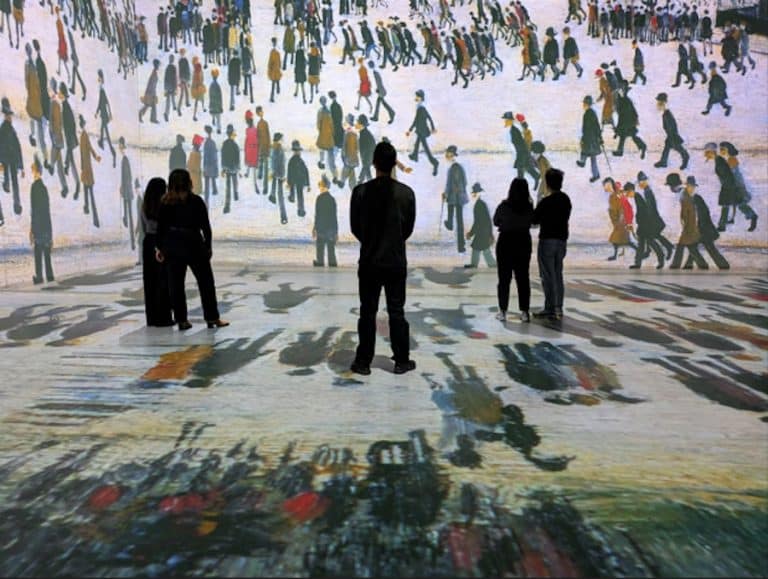
Lowry’s most iconic painting becomes a thrilling immersive experience
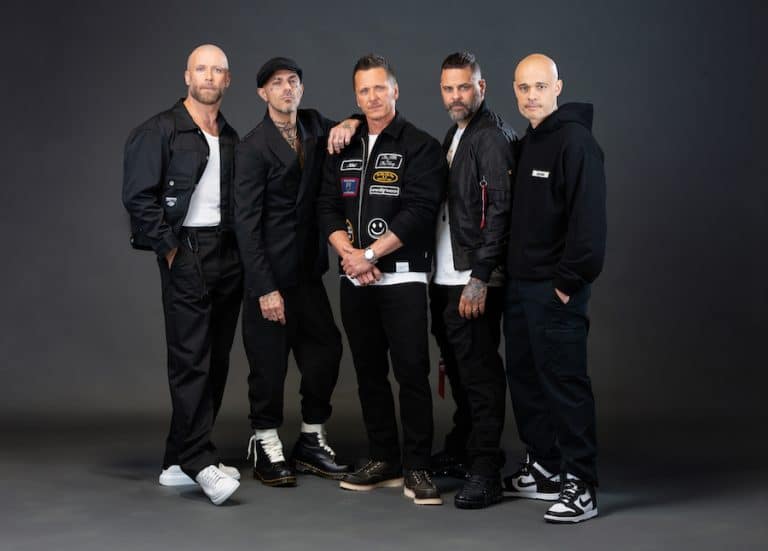
Five’s first full reunion in 25 years hits Manchester this Autumn
